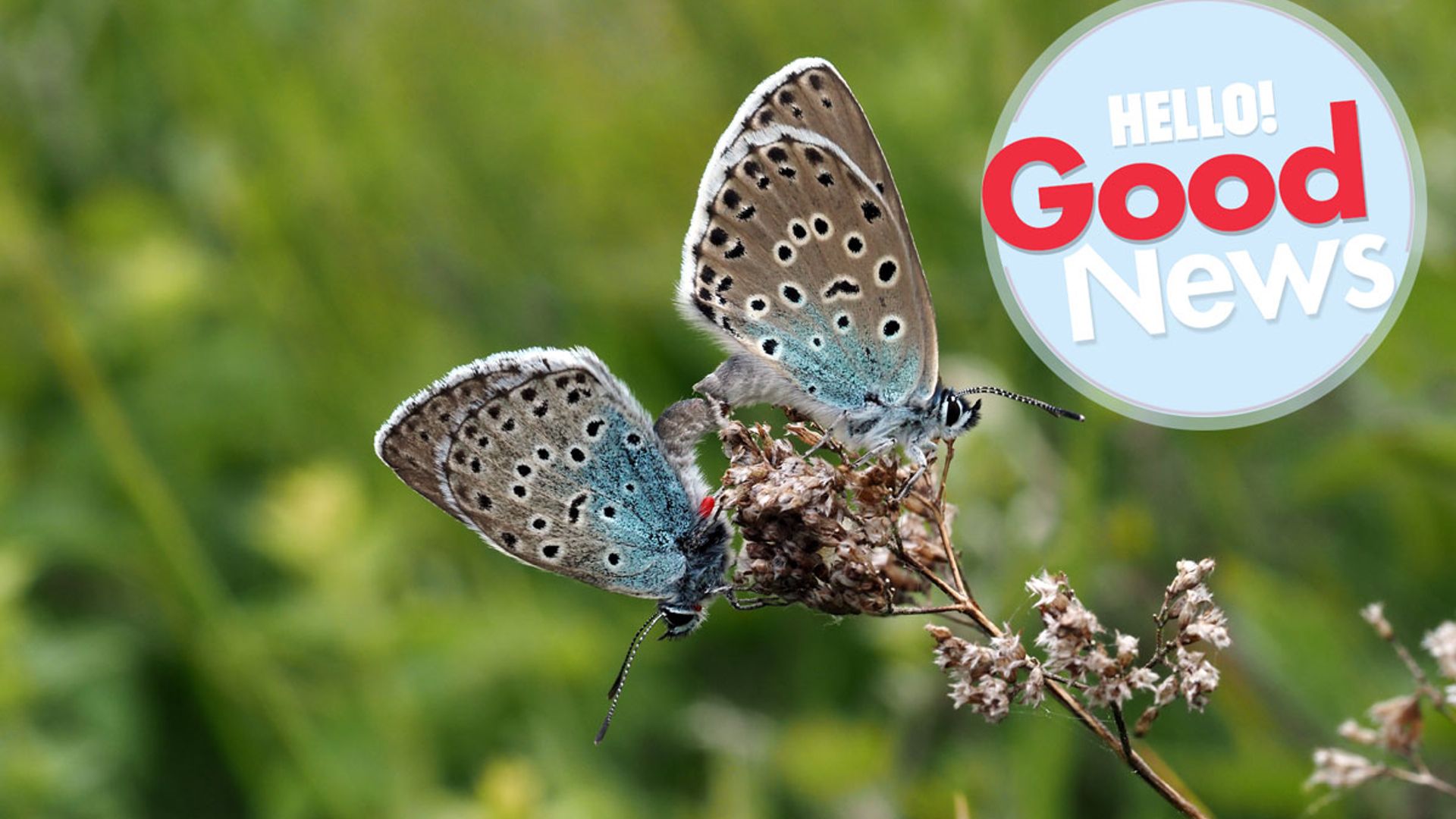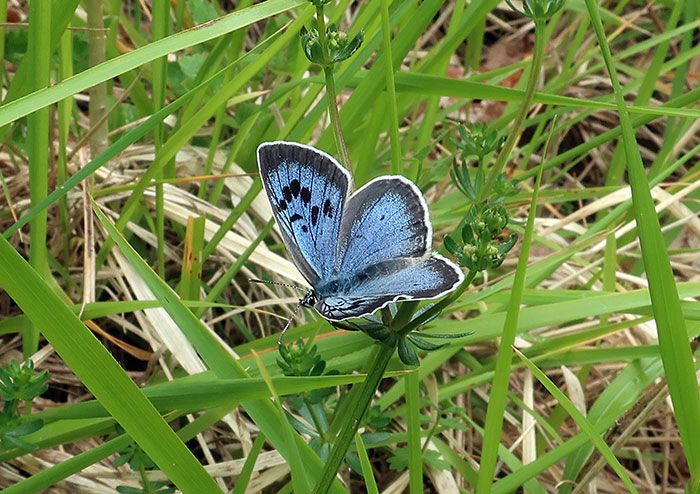The Large Blue Butterfly, one of the UK's rarest butterflies, is now thriving! Once declared extinct in the UK, numbers of the large blue are at their highest ever, with the south west of England being declared the Large Blue Butterfly hotspot. Around 1,100 larvae were taken from West Country locations, where the Large Blue had been reintroduced in 2000, and released on Rodborough Common and Minchinhampton last year – this year, around 750 butterflies have emerged from their cocoons.
HOORAY! There are more penguins in Antartica than we thought
Officially recognised as having died out in the UK in 1979, it took five years for conservationists to create the perfect habitat for them to thrive on. The Large Blue feeds on a mix of red ant species, wild thyme and marjoram; the butterfly larvae trick the ants into carrying them to their nest, where they stay and feed on the ant grubs before they emerge as a butterfly the next year.
READ MORE: Teens are turning into conservationists during lockdown
Researcher David Simcox said: "The butterfly needs high densities of the heat-loving red ant Myrmica sabuleti, which has a crucial role to play in the lifecycle of the butterfly. The grazing cows create the ideal conditions for them by keeping the grass down so sunlight can reach the soil which gently warms it, creating perfect conditions for the ants."
WATCH: The amazing balloon flypast over Bristol
The conservation work was a combined effort from the National Trust, Butterfly Conservation, Limestone's Living Legacies, Natural England, the Royal Entomological Society (RES) and the Minchinhampton and Rodborough Committees of Commoners. The Large Blue is identified by a distinctive row of black spots on its upper forewings and hadn't been spotted in the Minchinhampton or Rodborough area for 150 years.










